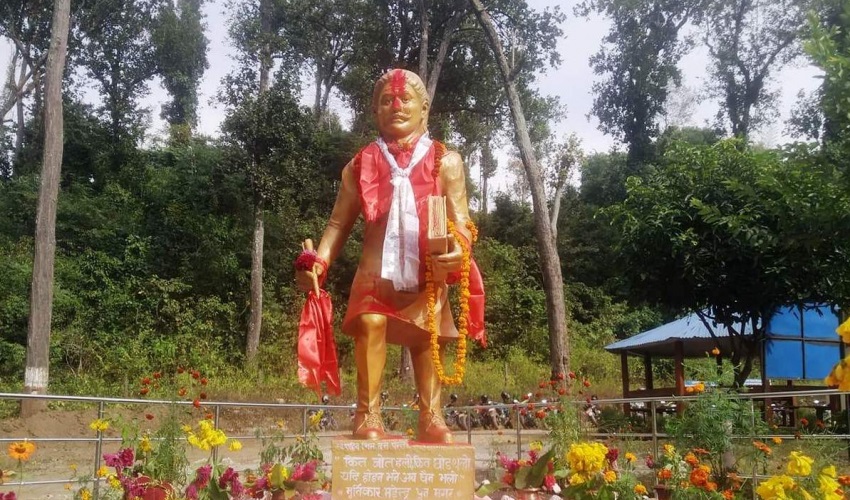
Martyr Bhimdatta Panta Remembered Across Nepal
While many things in life remain uncertain, death is an absolute truth. Yet, some individuals leave a lasting impact not by their death but through the legacy of their actions. One such remarkable personality is the revolutionary peasant leader, Bhimdatta Panta.
On Shrawan 17 (today), Martyr Bhimdatta Panta Memorial Day is being observed across the country through various programs. However, this day is not merely a ritual of remembrance—it is also a call to revisit his ideology and continue the movement he led.
Life and Education of Bhimdatta Panta
Born on Mangsir 10, 1983 BS, in Karigaun, Dadeldhura, Bhimdatta Panta was the son of Saraswati Panta and Taranath Panta. He pursued his education in Sanskrit in Singhai, Uttar Pradesh, India. His philosophical awakening was ignited by the combination of the religious teachings of the Gita and the scientific ideology of Marxism.
Scholar and Revolutionary
According to Nariram Lohar, chairperson of the Advocacy Group for Community Transformation, “Education made him not only a scholar but also a warrior devoted to social justice. Embracing both the Gita and Marx, he questioned class divisions.”
Revolutionary Acts and Leadership
From 2007 BS onwards, Bhimdatta Panta raised the flag of rebellion against feudal mindsets, caste discrimination, labor exploitation, and injustice. His leadership gave rise to what was known as the Bhimdatta Congress.
On Baisakh 2, 2009 BS, in Ghatalthan, Dadeldhura, he delivered a powerful message by having people of so-called upper castes drink water served by Jay Das, from a single dish, declaring, “No caste is superior or inferior now.”
Breaking Social Barriers
Former Member of Parliament Nira Jairu states, “He didn’t just preach against caste discrimination—he demonstrated it through action, initiating a tradition of sharing meals across all castes.”
Bhimdatta organized the Dalit, Magar, Tharu, and other marginalized communities to form a liberation army. He prevented evictions and burned loan agreements (tamasuk). “His greatness lay in displacing feudal lords,” said Jairu. “His revolt on behalf of bonded farmers is worth remembering.”
Voice of the Oppressed
Haliya leader Rajuram Bhul recalls, “We learned from Bhimdatta that we are not just bonded laborers, but citizens. He was not just a leader—he was the carrier of our self-respect. His martyrdom before the movement was complete made us wait years for freedom.”
Martyrdom and Aftermath
Bhimdatta's popularity terrified both local elites and the state. On Shrawan 17, 2010 BS, he was shot in Gailek, Budar. His severed head was displayed on a bamboo pole to instill fear. His family was ostracized, denied funeral rites, and he was ultimately cremated in Haridwar.
A New Beginning Through Martyrdom
“Bhimdatta's death marked the end of an era—but also the beginning of an ideology,” said land rights activist Rambahadur Chunara. He added that the slogans Panta raised then remain highly relevant today. One of his famous lines was:
“Either plough the land or leave it; otherwise, there is no good left for you.”
Chunara also recalls Panta’s rallying cry:
“Freight from Delhi arrives on the Bombay train—
The days of the poor have arrived,
The days of the elites are gone.
Rise up, awaken, Nepali youth!”
Declared a Martyr by the Government
In Falgun 2072 BS, the government officially declared Bhimdatta Panta a martyr. According to Chunara, Panta’s dream will only be fulfilled when landless, squatters, and flood-affected individuals are granted land, agricultural self-sufficiency is ensured, and equal access to education, healthcare, and employment is established—with justice, equality, and inclusivity realized in practice.
Guiding Voice for the Landless
Though Bhimdatta Panta is no longer physically present, his ideas, dreams, and sacrifices continue to guide the voices of the landless today, according to land rights activists.
Annual Day

